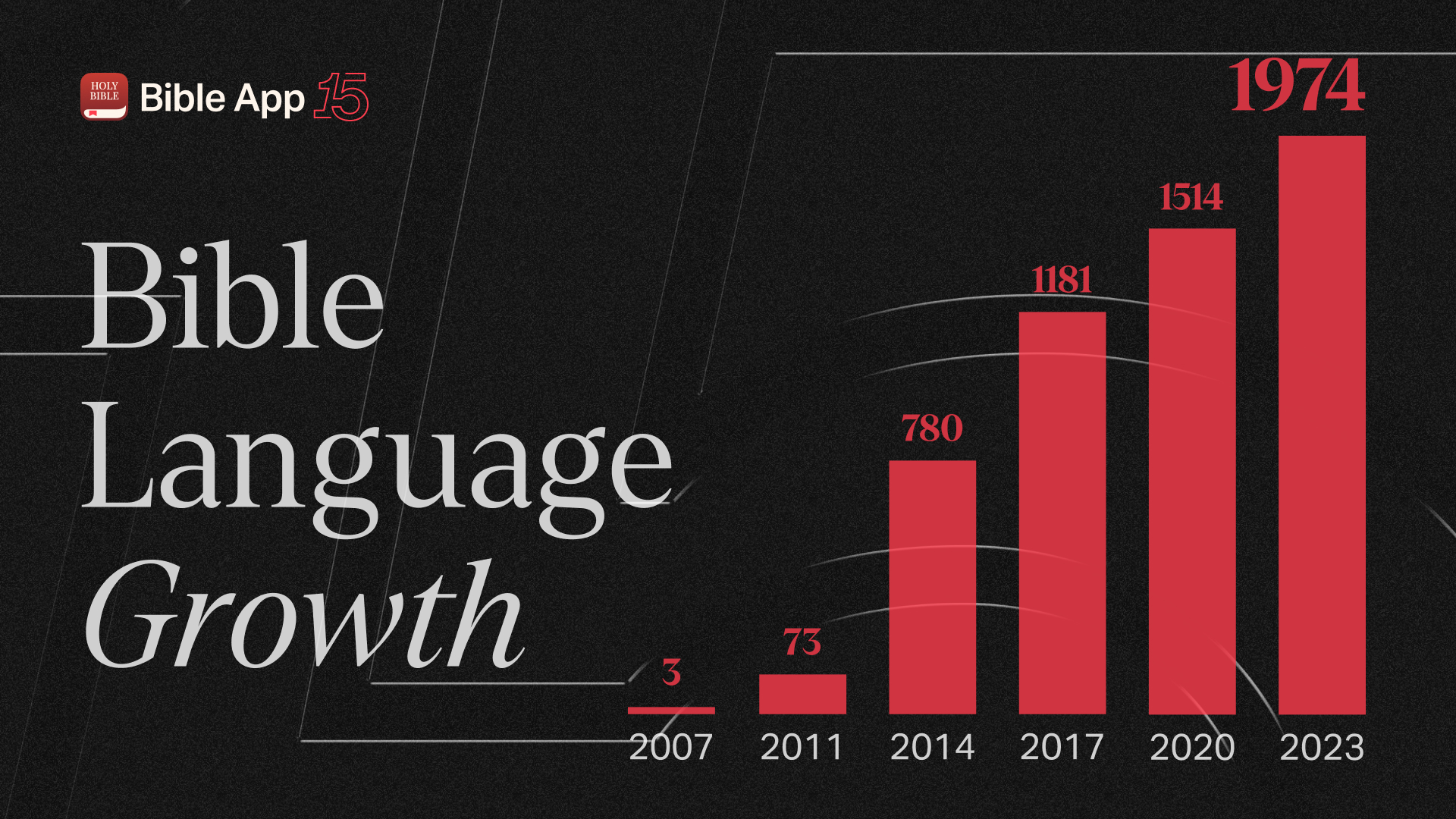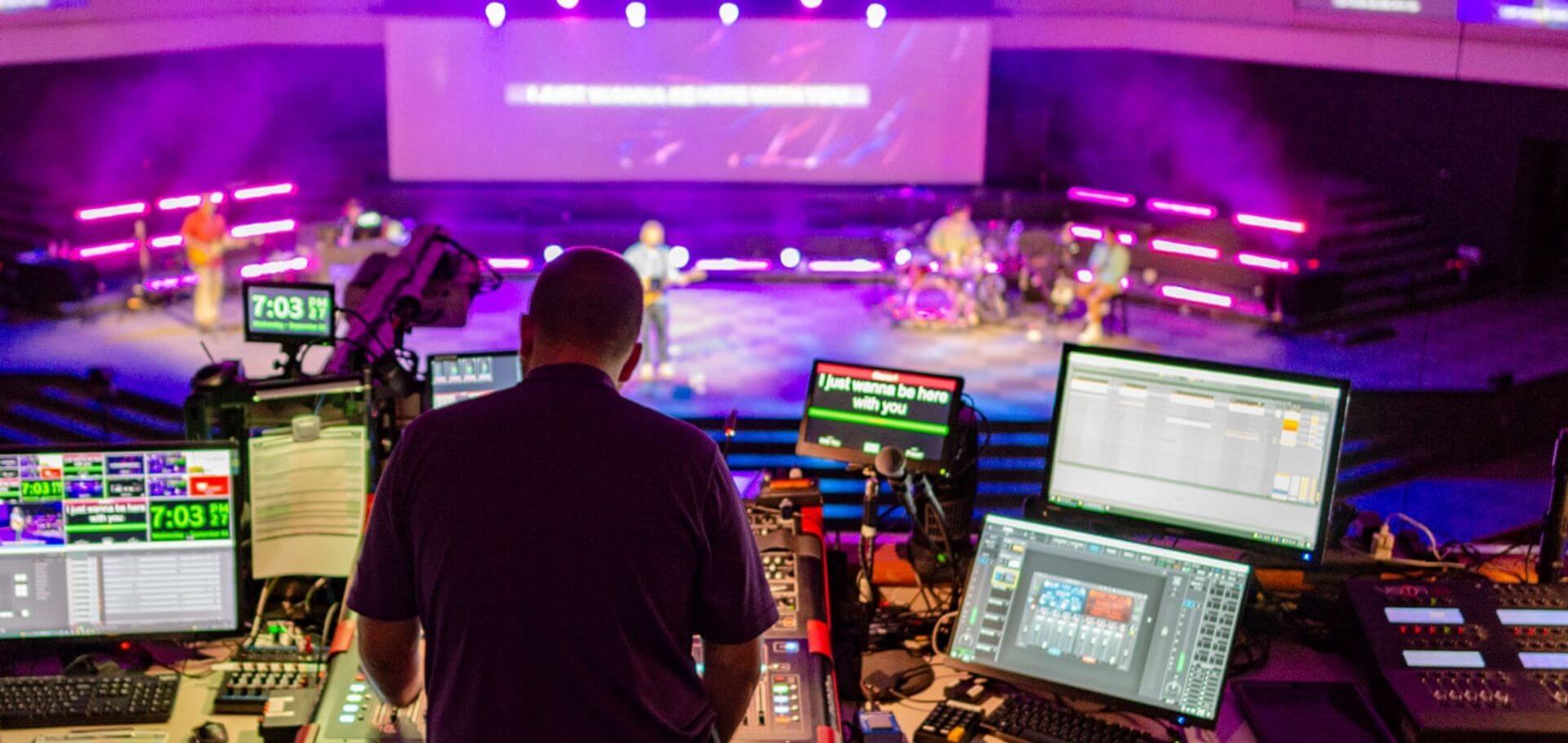7 ways digital technology can help fulfil the Great Commission: Lausanne Movement
by Theresa Tan // May 4, 2024, 2:45 pm

What opportunities are there in the digital age to fulfil the Great Commission? The fourth Lausanne Congress released its "State of the Great Commission" report last week which explores this. Photos from Lausanne.org unless otherwise stated.
The Church was thrust into the digital space – willingly or not – when COVID happened.
With the widespread adoption of online church came many opportunities as well as a host of new challenges, adding to the complex issue that is staying faithful to the Great Commission in this day and age.
The truth is that the digital world is where most people are, whether the Church likes it or not.
“The question becomes, will we enter in (1 Corinthians 9:22)?” asks authors of a report titled “Ministry in a Digital Age”.

The “State of the Great Commission” is the latest report from the Lausanne Movement on current and future trends in evangelism. Ministry in the digital age is one of the 10 key issues in the report.
The report is part of the “State of the Great Commission”, a key document in the upcoming fourth congress in Lausanne Movement, which takes place in South Korea in September.
The fourth Lausanne Congress, which studies the trends in global evangelism leading up to 2050, is “a unique opportunity for the global body of Christ to stand as one around a united call to let the Church declare and display Christ together.”
Released last week, the State of the Great Commission shares insights from more than 150 global mission experts and sheds light on how, as a global Church, Christians can be obedient to Jesus’ Great Commission today.
One of the 10 key questions this study asked was “What is ministry in a digital age?”
Five research papers under this question studied the areas of scripture engagement, ministry data, church forms, proclamation evangelism and discipleship in a digital age.
The challenges, of course, are manifold, but the opportunities abound. From these papers, Salt&Light drew seven ways the digital age is ready for fulfilling the Great Commission.
Seizing opportunities in the digital space
The authors of “Discipleship in a Digital Age” presented a compelling reason for the Church actively entering the digital space.

Social media allows ministries to saturate believers’ feeds with disruptive re-directions to living for Jesus.
“Multitudes stand in the valley of decision. Moment by moment, they are deciding on something.
“If we are not present in the digital space, pressing people toward inconvenient Christ-like following, they will simply decide on something easier.”
They declared the present an “unprecedented opportunity to infuse discipleship learning” into believers.
The strategy they proposed: To “saturate believers’ digital consumption with disruptive re-directions to the embodied life of following Jesus.”
Ultimately, even as the Church brings Kingdom content into the digital space, the power of God is what brings a change to hearts.
They wrote: “As we advise discernment regarding digital consumption and its inherent dangers, we can trust the gospel of Jesus Christ to retain its superseding power, cutting through the impediments of the digital landscape, and allowing us to leverage hi-tech tools to shape our hearts in synergy with face-to-face guidance (1 Corinthians 11:1).”
1. Digital space offers the comfort of privacy.
In the digital space, interactions occur mostly on a one-to-one basis, so people are more likely to give deep consideration and honest responses.
Digital avenues of discipleship circumvent the bystander effect. Things they can say in private, they cannot say in a church setting.
In digital exchanges, people, including Christians, feel safe sharing socially unacceptable struggles and take challenging discipleship to heart, because the fear of judgment is removed.

Studies reveal that private, one-on-one digital interactions allow for honest responses without fear.
This is why the Internet is where they bring their most private questions and problems.
The opportunity for evangelism and disciple-making is big, if we can meet their needs with compassion and, from difficult conversations guide them towards face-to-face discipleship relationships.
2. Digital space offers the power of immediacy
Digital communication offers the opportunity to disciple people through the most painful moments of life immediately.
Such moments may include a mental health crisis, a fight between husband and wife, a traumatic situation.
In these moments, Christians desperately need discipling but seldom feel up to calling on a church leader for guidance.
There is an opportunity here to build an ecclesial culture of confessional honesty.
3. Digital space allows everyone to be equal.
The digital discipleship space is a level playing field in many ways.
This offers a great opportunity to engage and disciple Christians who have been traumatised by their churches which may not have reflected the heart of Christ, say the authors.
Things that they feel they cannot voice out to his church leaders or pastors for fear of being insubordinate, or questions they are too afraid to ask can be broached safely online.
4. Digital space overcomes barriers that physical ministries face.
The Internet makes it possible to send discipleship materials to communities that are hostile to the gospel.

Digital platforms enable ministries to reach more people, further and faster.
Many digital discipleship resources are free, which is a godsend to churches that lack the funds to create materials or to hire more workers.
Other Christians who cannot easily participate in physical church services and activities, such as the bedridden and immunocompromised, mothers of young babies who have no help, or people living in remote areas can benefit from streaming events, virtual meetings and connecting with digital communities.
5. Digital space has the benefit of greater range, reach and frequency.
The digital space offers an unprecedented opportunity to infuse discipleship learning into believers.
Digital platforms enable ministries to reach more people, further and faster, say the authors.
Built-in tracking and data analyses provide digital insights to help ministries maximise effectiveness by matching particular discipleship topics to particular communities.
In addition, digital discipleship communities foster identification with the global church. Digital tools can reconnect us to the worldwide body of which we are a part.
Just as the disciples in the Book of Acts met daily, online communities and discipleship resources invite daily peer-to-peer interaction, encouragement, support, and connection.
6. Digital platforms have the ability to elevate engagement with Scripture.
Digital platforms have increased how people can engage with the Bible.
Online Bibles, mobile apps, and social media platforms make it possible to read, study, and share Scripture, amplifying the reach of God’s word.
Reports on the “State of the Bible” conducted by institutions like the American Bible Society and the United Bible Societies reveal that digital tools, including Bible apps and online platforms, have globally increased Scripture accessibility.
YouVersion, which created the popular Bible app, grew to 575 million installs in 15 years (2023) and offers translations in 1974 languages, as of 2023.

The Bible App, which has over 575 million downloads, is bringing Scripture to more than 1974 communities through its Bible translations. Photo from YouVersion.com.
One opportunity for the preaching of the gospel and the deepening of Bible knowledge lies in church-centric Bible translation (CCBT).
CCBT allows for Scripture to become available in various local dialects. This involves the active participation of local church communities in the translation process, making the translation more responsive to their linguistic and cultural specificities.
The authors of the paper “Scripture engagement in a digital age” proposed the integration of AI in CCBT to speed up the process, bearing in mind the limitations.
If done successfully, CCBT can ultimately lead to a deeper and more personal faith experience.
7. Digital space enables a variety church experiences.
The digital church is an embodiment of Apostle Paul’s words: “I have become all things to all people so that by all possible means I might save some.” 1 Corinthians 9:22
The paper “Church Forms in a Digital Age” covers five forms of digital church:
- Online church: Many churches have websites, emails, social media channels, and admin software to effectively communicate and organise.
- Broadcast church: Services are broadcasted on digital platforms but there are limited possibilities of engaging.
- Interactive church: Uses video-conferencing for services but actively encourages interaction with and between participants.
- Hybrid church: Participants are welcome to join services onsite or online through live streaming.
- VR-church: Worshippers join live sessions in immersive digital spaces and typically interact through avatars.

The digital age may be leveraged to augment our Great Commission efforts, but only if our approach enhances, the embodied practices of following Jesus together, write the authors.
Trust the gospel of Jesus Christ to retain its superseding power, cutting through the impediments of the digital landscape.
The technology now exists for such iterations of church, so the Church as a whole now has to consider how to reach people instantly and how to begin to disciple them.
Ultimately, the papers dovetail in their agreement – emphatically – that the outreach begins online, but discipleship is developed:
“The digital age may be leveraged to augment our Great Commission efforts to make disciples, but only if our approach enhances, rather than displaces, the embodied practices at the heart of following Jesus together.
“The digital age presents the distinct opportunity to emphasise in our discipleship embodied connection, face-to-face interaction, slow and steady commitment, and physical proximity as direct antidotes to the isolation, utilitarianism, and abstraction by which the digital age has harmed our humanity.” (“Discipleship in a Digital Age”)
Read the full report here.
“A very special time for the Asian Church”: Lausanne Movement CEO on Seoul 2024
How can we be effective witnesses in an impersonal digital age?
“A pivotal moment in Christian history”: Fourth Lausanne Congress to be held in Seoul 2024
We are an independent, non-profit organisation that relies on the generosity of our readers, such as yourself, to continue serving the kingdom. Every dollar donated goes directly back into our editorial coverage.
Would you consider partnering with us in our kingdom work by supporting us financially, either as a one-off donation, or a recurring pledge?
Support Salt&Light


